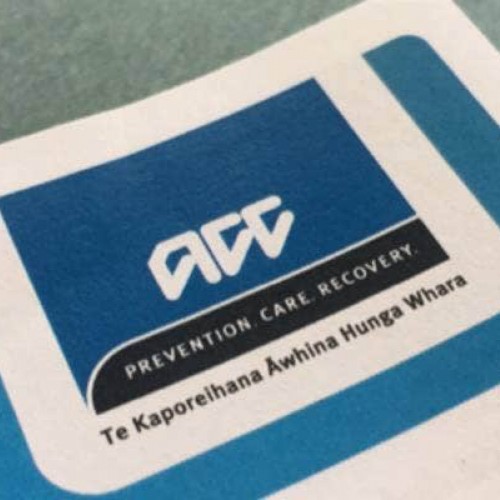
Understanding your ACC invoices
Categories
Do you understand the existing ACC policies and why you may feel like you are always paying ACC?
It's important to understand your ACC invoices so that you are aware of what can affect how much you pay, what you could do to adjust the amount that you pay, and ensure that you have appropriate cover.
ACC provides personal injury cover for all New Zealand citizens, residents, and temporary visitors. This applies to every New Zealand resident that earns income and pays ACC.
What are the ACC Invoice types?
- Employees – Any entity that pays employees PAYE will receive an employee invoice.
- Shareholder Employees - Any company that allocates their shareholders a salary with no tax deducted. (usually at end of the year when accounts are finalised)
- CoverPlus - All self-employed contractors and individual partners of a partnership or LTC (unless on CPX)
- CoverPlus Extra – A policy that can be opted into by shareholder-employees or individuals that would otherwise pay a CoverPlus invoice.
A company could receive an employee invoice, a shareholder-employee invoice and could also pay the shareholders CPX invoice (if opted into)
So let's look at the Employee Invoice
The business is responsible for paying the employees ACC with their PAYE (for injuries that happen outside of work).
They will also be required to pay a work account levy, for injuries that happen at work and a working safer levy that is passed onto Work Safe NZ.
The work account levy depends on the business classification code (see below for more information regarding this) and the number of wages/salaries paid to the PAYE employees during the year. This information is received by ACC through IRD and the payroll filing.
What can affect the amount that you pay?
- Having the correct levy code for your business
- Experience rating (No claims discount or loading.)
- If an individual employee earns over the maximum income for ACC
Shareholder Employee Invoice
The company will receive an invoice for shareholders' salaries once the tax returns are filed. They will have to pay a provisional levy and then a final levy. Unless all of the individual shareholders are on CoverPlus Extra (CPX), if this is the case they will only have a small final levy (Working Safer Levy)
The provisional levy will be calculated based on the total salary paid in the previous year, plus an uplift of 10%, and will be on the same invoice as the previous year’s final levy.
What can affect the amount that you pay?
- Having the correct levy code for your business
- Experience rating (No claims discount or loading.)
- If an individual employee earns over the maximum income for ACC
- If an individual receives a salary but only does administration work opting to CPX will reduce the levy *conditions apply
CoverPlus (contractors, self-employed, partners, etc.) invoice
Once the individual’s annual tax return is filed with IRD, they receive an annual invoice based on the total liable income.
Can opt for CPX.
Just like employees they will pay a Work Account Levy and working safer levy but it will also include an earner’s levy.
What can affect the amount that you pay?
- Having the correct levy code for your business
- Experience rating (No claims discount)
- Earns over the maximum income for ACC & multiple income sources
CoverPlus Extra Invoice/Policy
Under ACC CoverPlus Extra, you and ACC enter a contract where you both agree the amount of compensation that you will receive should you have an accident. (Conditions apply) The invoice is paid in advance (usually in April each year) and is based on the work that you do rather than the business's main activity (you don’t necessarily have to have the same business classification code as the company or partnership). It can replace the share-holder employee invoice (in part) or the CoverPlus policy.
Business Classification Code
This is a code that relates to the riskiest activity that the business participates in. ACC uses a risk-based classification system where business activities are grouped so the costs of work injuries are fairly distributed among similar businesses. ACC sets levies for each group by comparing the costs of previous claims with total earnings within that activity group.
For example, a professional rugby player levy rate is $6.43, because of the risk related to injury with this occupation, whereas the administrative services levy rate is only $0.24.
In some businesses, if there are share-holder employees or a partner in a partnership that does the administration for the business, which has less risk of an accident, with a standard policy they will be paying ACC based on the riskier classification code. If they change to CoverPlus Extra then they will only pay ACC based on the administration classification code. *terms and conditions apply
Experience Rating
If your annual work levy is over $10,000 for three years in a row, your business falls under the Experience Rating Programme.
Under this program, employers who have lower-than-average injury rates, with better-than-average rehabilitation or return to work rates, may receive a discount on their ACC work levy. Those with worse-than-average claim history may receive a loading on their levy.
Based on their claims history, businesses may receive a discount of up to 50% or a loading of up to 75% on the current portion of their work levy.
Businesses that fall below minimum liable earnings ($36,816 in the 2019/20 levy year with effect from 1 July 2019) or have not been invoiced for an ACC levy for each year of the experience period are exempt. Their levies will continue to be calculated as usual.
Payment Plan Options
ACC offers 3, 6, or 10 monthly installments on invoices.
The 3 or 6-month plan will incur no fee or interest whereas the 10 monthly payments you will pay a 5.4% (2019) fee (of the total levy for payment by installment, this ends up being over 11%).
If you have any further query’s regarding ACC or would like a review of your ACC completed, don’t hesitate to get in touch with our team.

- News

 Sarah Hopkins
Sarah Hopkins
 Craig McCallum
Craig McCallum
 Alex Crackett
Alex Crackett
 Craig Sutherland
Craig Sutherland

